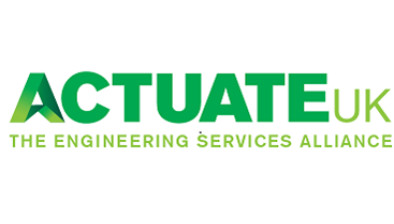Working group unveils recommendations for cash retentions reform
A Scottish Government working group has recommended a list of reforms to the outdated practice of cash retentions to protect sub-contractors from payment abuse and upstream insolvencies.

While acknowledging that there is not at present widespread support in Scotland for full abolition of cash retentions, the Short Life Working Group on Retentions in Construction Contracts makes a range of recommendations to improve the payment conditions in both the public and private sector.
The recommendations include legislation to establish a statutory custodial Retention Deposit Scheme; Scottish Government to issue a retention best practice policy note and proceed to greater transparency and drive compliance on the retention practices for public sector contracts.
The group also asks Scottish Government to reference retentions and fair payment within the Construction Accord and monitor the situation to promote best practice in collaboration with industry. Moreover, work should continue to consider and implement removal of retentions from contracts as demonstrated by Network Rail.
Cash retention in the construction industry is a sum of money withheld from the contractually-agreed amount due on a construction project; the purpose of a retention is to mitigate risk should some of the work not be completed satisfactorily, or any resulting defects not be rectified by the contractor.
The working group was set up to make recommendations as part of the Scottish Government review on retentions, which included government-commissioned independent research from Pye Tait and a public consultation. The report estimated that at any one time in the Scottish construction sector there are retentions worth around £124 million with half being released at practical completion and half at the end of the defects liability period. It observed however that the system of retentions is often abused and can create significant problems for smaller businesses should there be insolvency further up the chain.
Scotland’s largest construction trade association SELECT hailed the report as “a potential game-changer” – and says its recommendations could lead to greater reinvestment in the industry.
The electrical trade body says the in-depth review could bring an end to the practice of withheld retention payments and deliver “an essential financial lifeline” for contractors.
SELECT president Donald W Orr said: “The issue of retentions is one that has blighted the industry for many years, and this report makes it clear that there is a widely-held belief that change is long overdue.
“We welcome its recommendations and, if implemented, believe they could provide an essential financial lifeline that could save many businesses thousands of pounds every year.
“Retention monies could be reinvested by businesses in employing more apprentices, upskilling operatives or investing in new technology – bringing benefits to the wider industry and helping the whole construction sector build a stronger and more sustainable future.
“We, therefore, hope that the powers-that-be heed the advice in this report and have the courage to adopt what could be a potential game-changer for contractors.”
Mr Orr added: “While we would obviously like to see retentions abolished completely, these recommendations are certainly a step in the right direction and we hope the Scottish Government brings them to fruition.
“In particular, we would like to see the introduction of a statutory custodial retention deposit scheme, along with the automatic release of retentions as early as possible, unless a clear issue has been identified. We would also welcome the requirement for contracting authorities to publish their retentions policy and, if they deviate from it, to be made to explain why.”
The findings have also been warmly welcomed by fellow Scottish trade body the Scotland and Northern Ireland Plumbing Employers’ Federation (SNIPEF) and engineering services alliance Actuate UK, of which SELECT and SNIPEF are both key members.
The reform plan has been backed by a number of trade associations and as well as engineering services contractor umbrella body Actuate UK.
Alan Wilson, managing director of electrical trade association SELECT, said: “We welcome this report and its recognition of the seriousness of the ongoing issue of retentions.
“While we would obviously like to see retentions abolished completely, these recommendations are certainly a step in the right direction and we hope the Scottish Government brings them to fruition.
“In particular, we would like to see the introduction of a statutory custodial retention deposit scheme, along with the automatic release of retentions as early as possible, unless a clear issue has been identified. We would also welcome the requirement for contracting authorities to publish their retentions policy and, if they deviate from it, to be made to explain how and why.”
Alan added: “We are also grateful to the hard work carried out by working group and it is heartening to see progress being made via an ongoing spirit of collaboration and cooperation. Only by continuing to listen, talk and work together will we find a solution that works for us all.”
Fiona Hodgson, CEO of SNIPEF, added: “We would like to congratulate the working group for their report which addresses SNIPEF’s long-term ambition of creating a fairer competitive landscape in which SME’s can thrive. The group was drawn from across the sector and included SNIPEF’s Past President, Gordon Matheson and we are particularly grateful for his input.
“Payment abuse has been a significant issue for too many of our members for too long and we welcome the recommendations put forward in the report, in particular a statutory custodial deposit scheme which could protect sub-contractors from insolvencies and promote prompt payment and transparency.
“As a large amount of work undertaken is in the public sector, we would like Scottish Government to promote, monitor and implement best practice and lead by example.
“We look forward to working with the Scottish Government in taking forward these recommendations.”
Steve Bratt, CEO of ECA and lead on Actuate UK’s policy group on business practices, said: “We welcome the recommendations from the working group in Scotland. Retentions abuse is still widespread across the UK and one of Actuate UK’s aims is to achieve full abolition of the practice.
“However, we recognise that certain steps should be taken towards this and we are therefore really pleased that the working group’s recommendations provide a clear framework for action and we look forward to industry and Scottish Government moving quickly to implement them.”

















